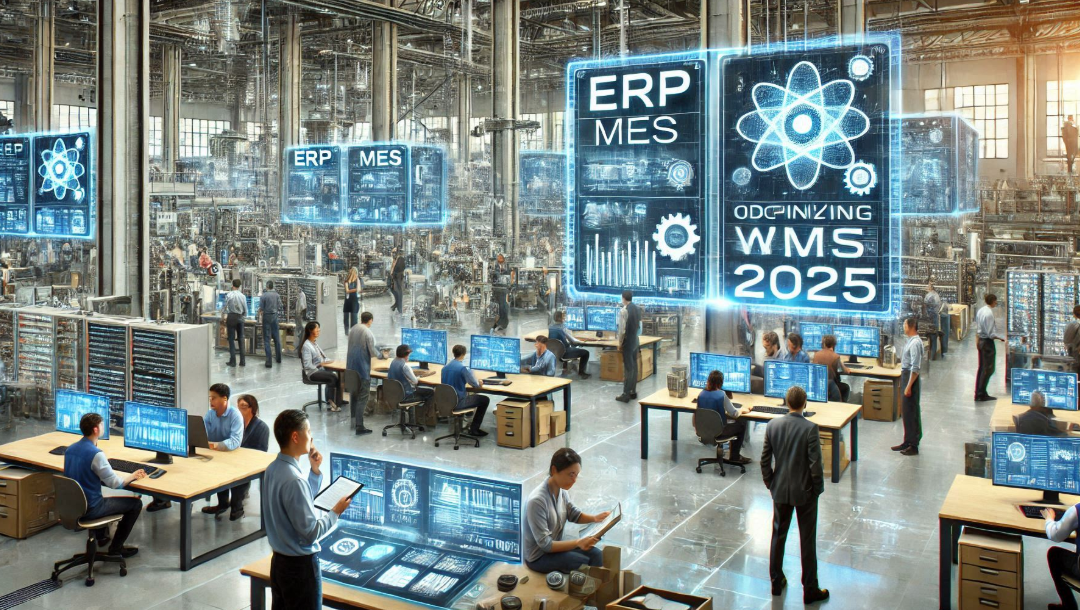Do you feel like everything is so hard right now? It might just be that production operators are feeling more anxious than most.
Production plans are impossible to align, delivery deadlines are tighter than ever; management is pushing for cost reduction and efficiency while machines keep breaking down; employee turnover remains high, yet orders still need to be fulfilled…
If 2024’s buzzword was “competition,” 2025’s trend might be “pressure.” As an operator, do these anxieties also take root in your heart?
1. The Anxiety of Data
“Why don’t my numbers ever add up?”
This is one of the most common frustrations faced by factory operators. Every day brings a sea of work orders and reports, yet the data often feels like a puzzle: scheduling data doesn’t align with inventory, equipment logs conflict with maintenance records, and resource allocation always seems off.
Where does this anxiety come from?
Perhaps it stems from digital systems still being isolated “islands.” With systems working independently, data discrepancies become the norm as volumes grow.
What can be done?
Some choose to integrate ERP, MES, WMS, and other systems to create a seamless data flow. Others prefer starting with small but precise initiatives, such as monitoring the efficiency of specific equipment and gradually expanding to other areas.

2. The Anxiety of Costs
“Customers are cutting prices so aggressively—how do we make any profit?”
This is a major headache for factory owners and operation directors. Labor, raw materials, and equipment maintenance costs keep rising, while customers demand “l(fā)ower prices and higher quality.”
Where does this anxiety come from?
Factories often suffer from rigid cost structures, limited flexibility in adjustments, outdated production processes, and inefficiencies in supply chain collaboration—all of which are potential profit leaks.
What can be done?
Lean production is one approach to reducing waste and cutting costs. Additionally, data-driven optimization—like using AI to predict raw material needs and prevent overstock—can free up working capital.
3. The Anxiety of Employees
“Workers keep quitting, and we can’t train new hires fast enough!”
Personnel issues are another major source of anxiety for workshop managers. Senior employees resist new equipment and processes, while new hires are unwilling to start at the bottom. The team’s overall productivity struggles to improve.
Where does this anxiety come from?
The issue may lie in outdated incentive mechanisms or insufficient training systems. Younger workers often prefer tech or service industries over physically demanding factory jobs.
What can be done?
Consider leveraging intelligent standardization systems that provide step-by-step operational guidance, significantly reducing the training period for new employees. By standardizing workflows and utilizing automation tools, factories can optimize workforce allocation and achieve more with fewer people.
4. The Anxiety of Equipment
“Another breakdown? We’ve already blown this month’s budget!”
For operators, equipment reliability often dictates production stability. A single unexpected failure can paralyze an entire production line, with emergency repair costs skyrocketing.
Where does this anxiety come from?
Many factories rely on reactive maintenance—fixing machines only after they break—rather than preventive or predictive maintenance.
What can be done?
IoT technology can help. By monitoring real-time equipment status and analyzing historical data, potential failures can be predicted, enabling pre-scheduled maintenance. This approach reduces downtime and optimizes repair costs.

How Can Operators Overcome Anxiety in 2025?
1. Focus on what you can control, and let go of what you can’t.
Don’t get caught up in the turbulence of the market. Focus on improving what’s within your reach—like workshop efficiency, employee training, and internal processes. These efforts will pay off in time.
2. Keep learning and growing.
Whether it’s industrial IoT, AI, or lean production principles, acquiring new skills will always serve you well. In a complex and changing environment, having technical expertise makes challenges more manageable.
3. Find a “balancer” in your life.
Don’t let factory problems consume all your time. Take a walk, read a book, or find some space to breathe every day.
4. Be patient with the future and proactive in the present.
As Zhuangzi once said, “Accept what you cannot change, and move forward calmly.” Anxiety doesn’t solve problems—action does. Solve one issue at a time, and life will feel lighter.
Every operator is a vital cog in the industrial world. May your 2025 be less dominated by anxiety and filled with the satisfaction of solving problems.
Start Now! Improve Order Delivery Efficiency Immediately!
Contact us and explore order delivery efficiency improvement with LinkedData digital transformation experts.
Request a Demo
 0510-8521 1230
0510-8521 1230



